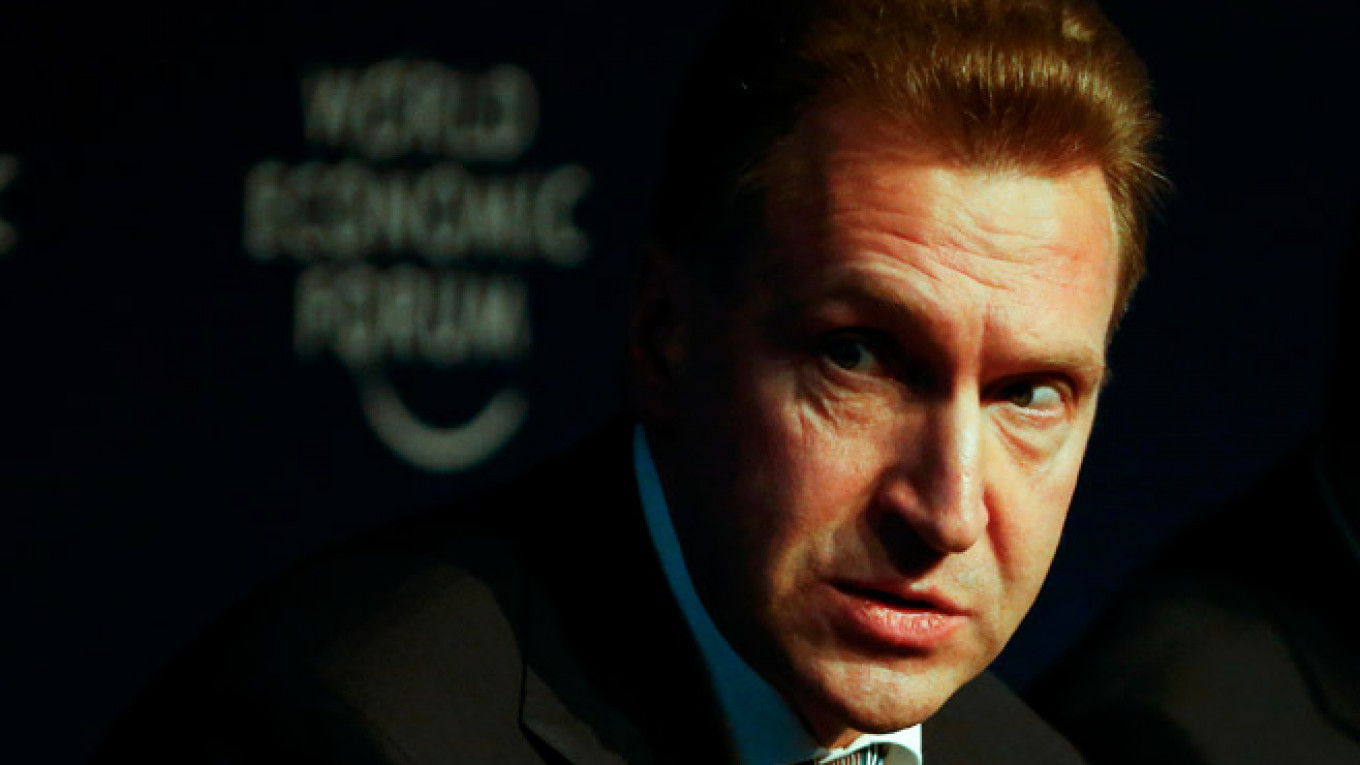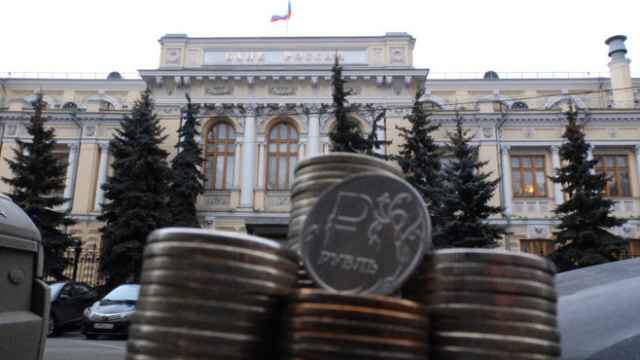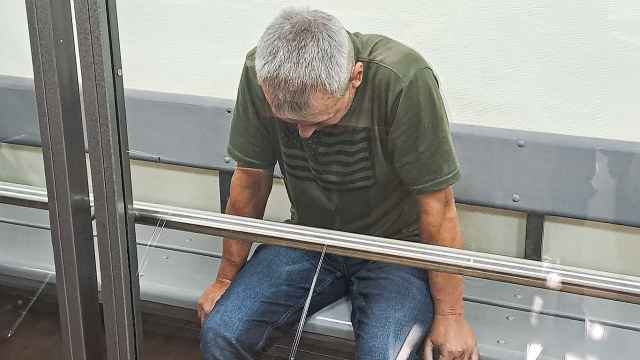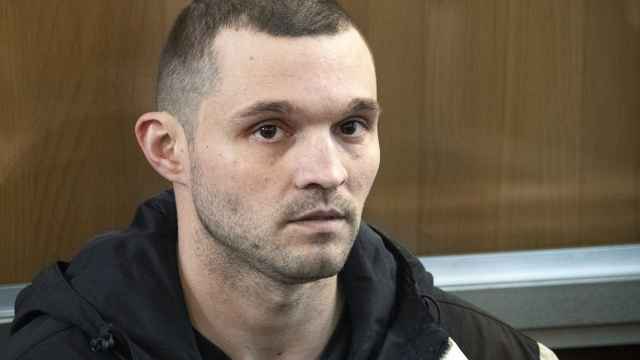Two Russian officials in as many days suggested that Russians will persevere through the economic crisis by tightening their belts, statements that prompted opposition activists to cry hypocrisy.
Russian Deputy Prime Minister Igor Shuvalov, speaking at the World Economic Forum in Davos, on Friday warned the West against trying to topple President Vladimir Putin and said that Russians are ready to sacrifice their wealth in support of Putin.
Russia has for the past year been sliding into recession amid a slump in its energy export prices as well as Western sanctions against Moscow's role in the conflict in Ukraine that has claimed more than 5,000 lives. Questions have been raised in Russia and abroad about whether the price that ordinary Russians are having to pay for the annexation of Crimea is too high.
A Russian 'Will Never Give Up His Leader'
Shuvalov, who is believed to be one of the richest men in the government, said that what he considers the West's attempts to oust Putin will only unite the nation further.
"When a Russian feels any foreign pressure, he will never give up his leader," Shuvalov said. "Never. We will survive any hardship in the country — eat less food, use less electricity."
Shuvalov's comments triggered pithy remarks on Russian social media including an opposition activist who posted photos of Shuvalov's Moscow, London and Austria homes to illustrate where the deputy prime minister would experience the hardships he described.
At the same panel in Davos, Putin's long-time ally and former finance minister Alexei Kudrin said that Putin clearly thinks that Russia's foreign policy interests at this point are worth the price the nation pays in higher inflation and the collapse of the Russian ruble.
Shuvalov, who worked with Kudrin until he resigned from the government in 2011, defended Russia's foreign policy but warned that Russia is "going into a longer crisis" compared with 2008, when it was battered for about two years by the global crisis.
Shuvalov said Russia should focus on cushioning the economic fall through reforms and supporting the financial system. "It is going to get worse and the anti-crisis plan should be aimed at adapting to the hard landing," he said.
The Inflation Diet
A lawmaker from the ruling United Russia party has offered his advice to Russians struggling to pay for food amid the country's soaring inflation: "Eat less."
Food prices in the Urals' Sverdlovsk region have increased by around 25 percent compared to the same period last year, figures cited by regional lawmaker Ilya Gaffner indicate, but he said it was "not that bad," according to video footage posted online Thursday.
During a televised visit to a local grocery store in Yekaterinburg, Gaffner suggested that Russians should draw inspiration from the most devastating periods in their country's history and enjoy the supposed health benefits of going hungry.
"We are all Russians, we have lived through hunger and cold," Gaffner told Novy Region television station.
"If supposedly there isn't enough money, people should think about their health and somehow eat less," he said lightheartedly.
The advice from the lawmaker, who heads the local legislature's agricultural policy committee, has sparked outrage from online users, some of whom accused Gaffner of having bankrupted an array of local farms and food-processing factories, Novy Region reported.
During the interview at the grocery store, Gaffner conceded that going without food may be difficult, but argued that New Year's feasts would supposedly tide Russians over for a while.
"The New Year's frenzy is over, people have all eaten their fill, and now it's time to engage in sports activities," he said in the video.
Some local inhabitants may be hard-pressed to appreciate the advice.
"I have a disabled son, he is constantly asking for sugar," a woman in the store told Gaffner. "I am forced to deny him, because there is simply no money at all anymore."
Party comrades from the regional United Russia branch responded to the criticism by praising the work of price monitoring panel Public Control — which Gaffner also heads — and by reproaching the lawmaker for not thinking through his statements.
"To Ilya Gaffner, who allowed himself an inappropriate remark, I would recommend to think seven times before saying something," local United Russia chief Viktor Shepty said in a statement on his party's website, under a headline that read: "Doing good deeds, one should be proper in one's remarks."
But Gaffner defended his statement, calling for Russians to "unite" in face of economic problems, local news site Ura.ru reported.
"People should recall the old times, should recall labor, should take care of vegetable gardens," he was quoted as saying. "I don't think I have said anything improper."
Gaffner made headlines last year when the Moskovsky Komsomolets tabloid accused an agricultural firm linked to the lawmaker of misappropriating state funds allocated for the support of local dairy farmers.
A website run by supporters of opposition activist Alexei Navalny responded to the incident by calling Gaffner the "best lawmaker of United Russia, who embodies that party."
The anti-corruption website added that Gaffner owned three apartments in Yekaterinburg.
"So he probably won't have to make changes in his eating habits," Navalny.com writers quipped.
Russia's foreign currency reserves shrank by 2 percent last week alone to $379 billion as the Central Bank sold foreign currency in a bid to prop up the ruble.
(AP, MT)
A Message from The Moscow Times:
Dear readers,
We are facing unprecedented challenges. Russia's Prosecutor General's Office has designated The Moscow Times as an "undesirable" organization, criminalizing our work and putting our staff at risk of prosecution. This follows our earlier unjust labeling as a "foreign agent."
These actions are direct attempts to silence independent journalism in Russia. The authorities claim our work "discredits the decisions of the Russian leadership." We see things differently: we strive to provide accurate, unbiased reporting on Russia.
We, the journalists of The Moscow Times, refuse to be silenced. But to continue our work, we need your help.
Your support, no matter how small, makes a world of difference. If you can, please support us monthly starting from just $2. It's quick to set up, and every contribution makes a significant impact.
By supporting The Moscow Times, you're defending open, independent journalism in the face of repression. Thank you for standing with us.
Remind me later.






